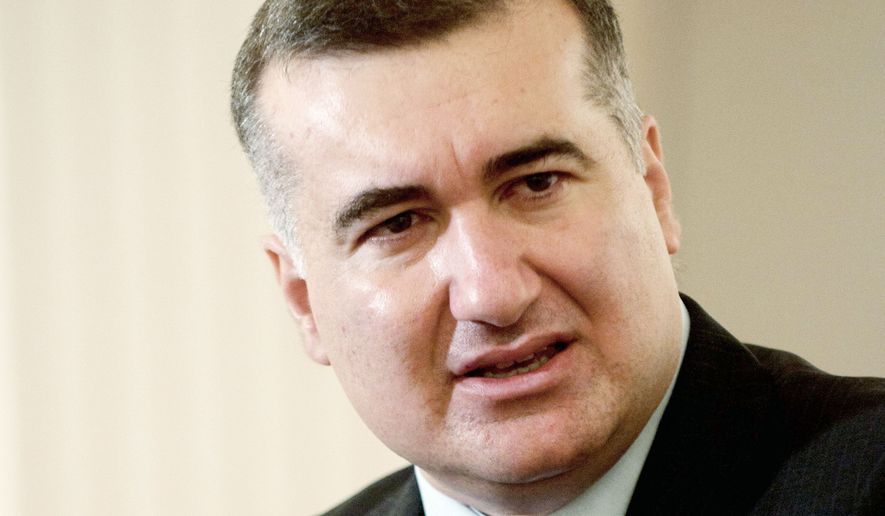Azerbaijan’s top diplomat in Washington rejects reports saying Turkey has sent Syrian militants to aid his country’s fight against Armenia, calling them Russian propaganda meant to dupe Western news outlets.
Fighting between the two former Soviet states over the Armenian-controlled enclave of Nagorno-Karabakh shows no signs of easing, raising fears that Turkey and other powers may be drawn into a broader regional war.
“I went to school in Moscow. I know propaganda very well, and this is basic Soviet propaganda,” Elin Suleymanov, Azerbaijan’s ambassador to the U.S., told The Washington Times in an interview.
“What you have here is a very strong virtual effort to produce a narrative designed to provide Armenia with an excuse to invite Russian forces into the conflict to carry out an anti-terrorism operation against Azerbaijan,” Mr. Suleymanov said.
Armenia’s ambassador to Russia said a month ago that Turkey had sent some 4,000 fighters from Turkish-controlled northern Syria to Azerbaijan. Western press reports have since said Syrian mercenaries are aiding Azerbaijan, a Muslim majority nation, against largely Christian Armenia.
Britain’s Guardian newspaper reported in late September that Syrian rebel fighters had signed up to work for a “private Turkish security company” as border guards in Azerbaijan. The report, which cited interviews with volunteers in Syria’s last rebel-held stronghold, did not identify the security company.
American sources say in private that The Guardian and other reports are plausible and fit within a pattern in which Turkey is employing Syrian militants as mercenaries in a proxy war with Russia, which also relies on mercenaries in foreign conflicts.
Top Turkish officials have said in recent days that they are willing to send troops to help Azerbaijan if requested but that no request had been made.
U.S. intelligence sources said both Turkey and Russia are employing mercenaries and proxies in Libya. Ankara has sent former Syrian militants, including some with jihadi ties, to battle mercenaries from the Kremlin-linked Wagner Group, they said.
But Mr. Suleymanov insisted that reports about Syrians being deployed to fight Armenians were bogus and that “lazy journalism” allowed misinformation to spread through Western media.
He denied a Washington Post report in mid-October that said a refrigerated truck had arrived at the Syria-Turkey border carrying the bodies of 52 Syrian men killed some 600 miles away in Nagorno-Karabakh.
“There’s no proof,” Mr. Suleymanov said. “Not a single body of a Syrian fighter has been found in Azerbaijan.”
Azerbaijan’s military forces don’t need the help of such fighters, he said, particularly if they have ties to Sunni Muslim jihadi groups. Azerbaijan is a Shiite Muslim majority country.
The reports have added to unease over the violence around Nagorno-Karabakh, a heavily ethnic Armenian enclave surrounded by Azerbaijani territory.
Concerns about the prospect of a widening regional war are high. Although Turkey is backing predominantly Muslim Azerbaijan and Russia is backing Christian Armenia, Turkish officials have sharply denied that they are sending Syrian militants into the fight.
• Guy Taylor can be reached at gtaylor@washingtontimes.com.




Please read our comment policy before commenting.